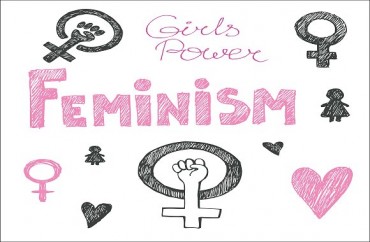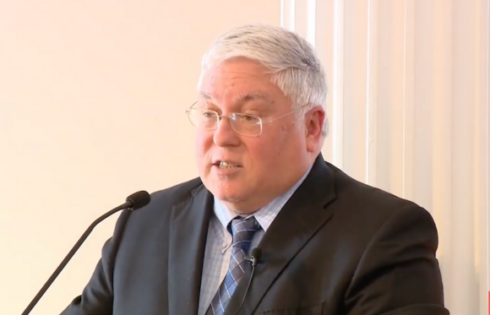
‘I’m starting to doubt my role in the movement’
A candid student op-ed in The Harvard Crimson expresses doubt that the feminist movement’s political leanings leave any place for her own beliefs.
“I will always stand up against any gender-based discrimination,” Jocelyn Tolpin writes, “but can I really do that under the label of a feminist? I say this because I’m not sure that feminism has a place for me anymore.
Part of the problem, as Tolpin sees it, is that her “Zionist beliefs are not supported in the community.” As an example she cites anti-Israel activist Linda Sarsour, who said earlier this year at the Women’s March: “It just doesn’t make any sense for someone to say, ‘Is there room for people who support the state of Israel and do not criticize it in the movement?’ There can’t be in feminism.”
Tolpin, who supports a two-state solution to the Israeli / Palestinian conflict, says: “I used to think that the leaders of the feminist movement were women who were standing up on behalf of people like me. Yet, that’s where I was mistaken—they aren’t.”
Tolpin cites further examples of the feminist movement’s anti-Israel politics:
On March 8, for International Women’s Day, women around the world abstained from working in order to initiate a movement of international feminism. However, part of International Women’s Strike platform called the “decolonization of Palestine” an element of “the beating heart of this new feminist movement.” It goes on to say that they “want to dismantle all walls, from prison walls to border walls, from Mexico to Palestine.” This supposed unity of feminism is one that alienates people in the process.
The LGBTQ+ movement, combined with the feminist movement, was pushing an anti-Zionist agenda with The Chicago Dyke March of Summer 2017, in which two Jewish lesbians were ejected for hoping to walk with Star of David pride flags. Jews were not allowed to march for their LGBTQ+ identities without renouncing Israel.
Tolpin shares an experience meeting another self-identified feminist at Harvard:
I met a girl that I really respected for her work with immigration and within the public service industry. We were having a conversation about feminism and about our frustrations with the movement when she disclosed to me that she’s anti-abortion.
Our previously fluid conversation paused for a few beats. I realized that her experience has been similar to mine. On account of her religious beliefs, she was excluded from feminist groups at her high school, she never felt completely comfortable identifying with feminism, and especially recently, she had started to feel really alienated by the movement.
I was at a loss for words because I was faced with my own unconscious correlation between body feminism and social feminism. But my definition in feminism is an overarching belief in equal rights. She believes in equal rights, therefore she is a feminist. I believe in Zionism, but I am a feminist too.
“I understand,” Tolpin writes, “that intersectionality occurs in order to make movements stronger, and to align them with more people. But the devolvement of feminism comes in the opposite form. Instead, leaders in the feminist movement are starting to alienate people by drawing boundaries of who exactly can identify as a feminist.”
MORE: Feminist researcher supports ‘combining intersectionality and quantum physics’
IMAGE: Shutterstock
Like The College Fix on Facebook / Follow us on Twitter





Please join the conversation about our stories on Facebook, Twitter, Instagram, Reddit, MeWe, Rumble, Gab, Minds and Gettr.